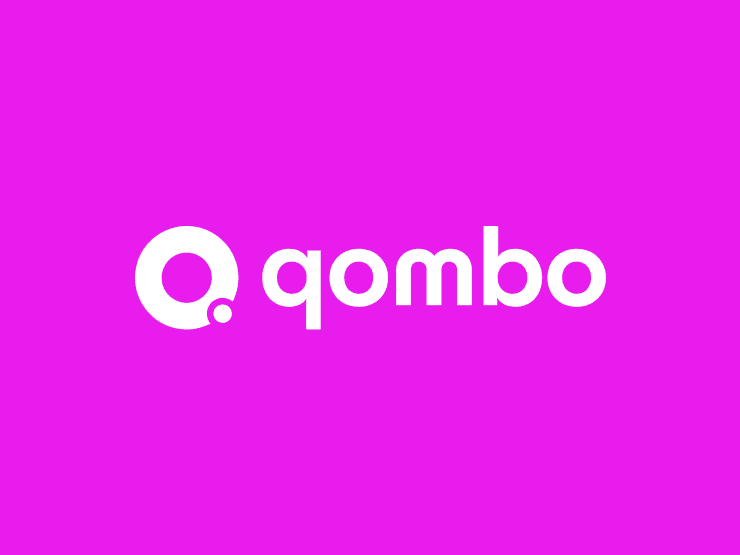- Features
- Pricing
Case studies
Qombo launches bank‑grade verification at 3,000+ RPS with Upsun
4-minute read

Challenge
A fixed regulatory deadline, bank-grade reliability expectations, and a lean team. Qombo needed to launch an EU-sovereign verification API capable of handling unpredictable spikes, without hiring DevOps or pausing product work. They also required audited controls, encryption, and EU data residency to expedite clearing bank compliance reviews.
Solution
Upsun provided an EU‑hosted application platform with the required compliance and security, Git‑native deployments, environments‑as‑code, automated scaling, and a co‑validated zero‑downtime deployment flow. Qombo built and shipped from a single repo; Upsun handled the platform, security posture, backups, and observability.
Fintech
Results
Reliability, velocity, credibility
- Sustained 3,000+ requests/second at launch with zero downtime.
- 0 DevOps hires required; founders focused on product and customer onboarding.
- EU sovereignty on OVHcloud, accelerating bank due diligence and compliance reviews.
- Faster iteration cycles with safe, repeatable zero‑downtime releases.
A lean, product-driven fintech ships continuously, without the infrastructure overhead.
Qombo is a Paris-based fintech that provides an API for IBAN and beneficiary-name verification to banks and payment providers across the EU. Its buyers, banks, and regulated payment providers expect 24/7 availability, low latency, and audited controls.
Built by two founders, Qombo set out to prove that a lean team could deliver bank‑grade reliability from day one. The commercial plan hinged on meeting a hard go‑live date for early banking partners while keeping the core team intentionally small.
On the technical side, Qombo runs a Node.js API and a Next.js web app, with Redis for caching. Data persists in both MongoDB and PostgreSQL, and encryption at rest is handled via Vault KMS, a stack chosen for speed, operational simplicity, and bank-grade resilience.
From DIY risk to operational bottleneck
Demand was lumpy and high-stakes; a launch cohort could drive traffic surges of thousands of requests per second with no warm-up window. Every deployment risked interrupting payment‑adjacent workflows, and any outage would erode trust with compliance‑sensitive buyers.
That growth curve exposed an operational truth: DIY infrastructure would dilute focus and force a DevOps hire before revenue. Qombo needed a platform that met compliance, regulation, and EU sovereignty expectations, scaled automatically, and made releases operationally invisible, so product velocity wouldn’t slow under operational load.
Why Upsun: compliance, no‑ops, and a partner mindset
Upsun matched the brief on three fronts. First, compliance posture and EU hosting let Qombo lead with credibility in banking conversations. Second, a no‑ops model, Git‑based workflows, automated pipelines, managed backups, and security hardening meant the team could keep headcount lean. Third, partnership: Ahead of launch, Upsun worked directly with Qombo to validate a zero-downtime rollout approach tailored to a high-throughput API.
"We really wanted to work with OVH behind Upsun, our clients are all Europeans and are very happy with this.", - Arthur Legourd, CEO and Co-founder, Qombo
Implementation on Upsun
Qombo's stateless services and data layer were modeled as code on Upsun, with environments branching from Git. Production ran on OVHcloud in the EU; autoscaling absorbed spikes while guardrails enforced safe deploys. The application layer is Node.js with a Next.js web app; Redis handles caching for hot paths. Data services combine MongoDB for document workloads and PostgreSQL for relational needs, with Vault KMS providing encryption at rest. Together, Qombo and Upsun employed a blue-green deployment style to ensure changes were shipped without interrupting live traffic. Observability and alerts were tuned to surface only what mattered during the first critical weeks.
Impact: continuous delivery without downtime
Within the first release window, Qombo sustained over 3,000 RPS with zero downtime, proving that a two-person team could meet bank-grade expectations without a DevOps function. Deployments became a background task: small, frequent, and uneventful. The credibility of EU sovereignty shortened buyer reviews; the absence of infrastructure toil accelerated roadmap work.
“The most important thing for us was to have a reliable partner doing all the DevOps and infrastructure for us. Not having to hire a person specifically for DevOps is critical.” - Arthur Legourd, CEO and Co‑founder, Qombo.
With the platform layer handled, Qombo’s founders now spend their cycles on customer feedback and product improvements, not fire drills. Zero‑downtime releases turned into a habit, reinforcing confidence with every change.
What’s next: scaling calmly across EU banking
Qombo plans to expand coverage across more European banks and adjacent verification flows while maintaining an intentionally small team.
"We want to keep a small team and keep building, not hiring. DevOps is strategic for us because it saves money and keeps us focused on the product.", - Arthur Legourd, CEO and Co-founder, Qombo.
With Upsun as the operational backbone, scaling is a planning exercise, not a hiring plan.
For fintech teams wrestling with EU compliance, unpredictable traffic, and limited DevOps capacity, Qombo’s story shows that the right managed platform does more than keep systems running; it turns infrastructure risk into product velocity, zero-downtime releases, and the confidence to scale with customers.
Your greatest work
is just on the horizon
CompareVercel alternativeAmazee alternativeHeroku alternativePantheon alternativeManaged hosting alternativeFly.io alternativeRender alternativeAWS alternativeAcquia alternativeDigitalOcean alternative
ProductOverviewSupport and servicesPreview environmentsMulti-cloud and edgeGit-driven automationObservability and profilingSecurity and complianceScaling and performanceBackups and data recoveryTeam and access managementCLI, console, and APIIntegrations and webhooksPricingPricing calculator
Join our monthly newsletter
Compliant and validated